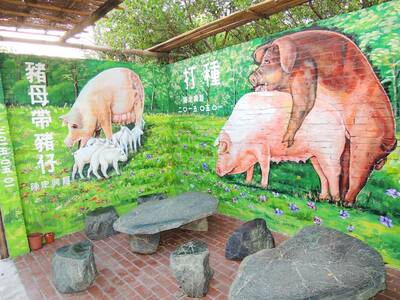More than 90 percent of women who are trying for a baby may have marginal or low levels of vitamins that are essential for a healthy pregnancy, according to researchers, who say the problem is likely to worsen as vegetarian diets become more popular.
Tests on more than 1,700 women in the UK, New Zealand and Singapore who planned to conceive revealed that most were lacking nutrients found in abundance in meat and dairy products, many of which are crucial for healthy foetal development.
“We were surprised at how common low or marginal status was for these micronutrients,” said Keith Godfrey, an epidemiologist and lead author on the study at the University of Southampton. “For the individual, the simple answer is that unless you’re following a really high-quality diet, you may need to consider taking a supplement.”

Photo courtesy of Pixabay
The women, aged 18 to 38, were recruited to the Nipper study, an international trial that is exploring whether combinations of nutrients and probiotics before and during pregnancy can improve the health of mothers and their babies.
Doctors measured blood levels of vital nutrients when the women were recruited and then randomly assigned them to receive either a standard vitamin supplement for pregnant women that contained folic acid, beta-carotene, iron, calcium and iodine, or an enhanced version that had additional riboflavin, vitamins B6, B12 and D, probiotics, zinc and a form of sugar called myo-inositol.
Before conceiving, nine out of 10 women had marginal or low levels of folate, riboflavin, vitamin B12 or vitamin D, while many showed signs of vitamin B6 deficiency in late pregnancy, according to their report in Plos Medicine. As expected, the supplements improved the women’s vitamin levels, though not always to sufficient levels.
“More work needs to be done to identify the ideal quantities, but certainly the amounts we gave, which you can purchase over the counter at the chemist, were sufficient to substantially reduce the prevalence of deficiency,” Godfrey said.
Folic acid and vitamin D supplements are already recommended for women who are planning a pregnancy, but Wayne Cutfield, a co-author on the study and professor of paediatric endocrinology at the University of Auckland, said expectant mothers should also be given over-the-counter multivitamins.
While the study was broadly welcomed by researchers, some noted that Godfrey, Cutfield and others received grants from Nestle and were co-inventors on patent filings around the enhanced supplement. Godfrey said the authors had no financial interest in the patents and that the analysis and paper were produced independently of the company.
Duane Mellor, a registered dietitian and senior lecturer at Aston Medical School, still had concerns, however.
“The conflict of interest goes beyond the research and the paper,” he said. “It can relate to how the science is communicated after publication.”
Asma Khalil, the vice-president of the Royal College of Obstetricians and Gynaecologists, said the study’s finding that 90 percent of women had marginal or low levels of some vitamins was concerning.
“This underscores the critical need for preconception and pregnancy supplementation, in amounts that can be bought over the counter,” she said.
She said the RCOG advised that all women and pregnant people maintain a healthy balanced diet and ensure they take folic acid and vitamin D supplements.
Judith Stephenson, of UCL, said: “A big plus is that this is a randomized clinical trial of supplements before pregnancy. The Nipper trial doesn’t provide all the answers but if I were preparing for a pregnancy today, I would try to eat a nutritious diet, take an over-the-counter supplement and check if I needed a higher dose of folic acid, for example if I had diabetes or obesity.”
Godfrey said the problem might become worse as society moves towards more plant-based diets, which can be low in vitamins B12 and D.
“We are going to have to get our heads around fortifying foods in a more substantial way,” he said. “And we’re also going to have to get our heads around growing plant-based foods with higher levels of these micronutrients.”

May 6 to May 12 Those who follow the Chinese-language news may have noticed the usage of the term zhuge (豬哥, literally ‘pig brother,’ a male pig raised for breeding purposes) in reports concerning the ongoing #Metoo scandal in the entertainment industry. The term’s modern connotations can range from womanizer or lecher to sexual predator, but it once referred to an important rural trade. Until the 1970s, it was a common sight to see a breeder herding a single “zhuge” down a rustic path with a bamboo whip, often traveling large distances over rugged terrain to service local families. Not only

Moritz Mieg, 22, lay face down in the rubble, the ground shaking violently beneath him. Boulders crashed down around him, some stones hitting his back. “I just hoped that it would be one big hit and over, because I did not want to be hit nearly to death and then have to slowly die,” the student from Germany tells Taipei Times. MORNING WALK Early on April 3, Mieg set out on a scenic hike through Taroko Gorge in Hualien County (花蓮). It was a fine day for it. Little did he know that the complex intersection of tectonic plates Taiwan sits

The last time Mrs Hsieh came to Cihu Park in Taoyuan was almost 50 years ago, on a school trip to the grave of Taiwan’s recently deceased dictator. Busloads of children were brought in to pay their respects to Chiang Kai-shek (蔣中正), known as Generalissimo, who had died at 87, after decades ruling Taiwan under brutal martial law. “There were a lot of buses, and there was a long queue,” Hsieh recalled. “It was a school rule. We had to bow, and then we went home.” Chiang’s body is still there, under guard in a mausoleum at the end of a path

Last week the Directorate-General of Budget, Accounting and Statistics (DGBAS) released a set of very strange numbers on Taiwan’s wealth distribution. Duly quoted in the Taipei Times, the report said that “The Gini coefficient for Taiwanese households… was 0.606 at the end of 2021, lower than Australia’s 0.611, the UK’s 0.620, Japan’s 0.678, France’s 0.676 and Germany’s 0.727, the agency said in a report.” The Gini coefficient is a measure of relative inequality, usually of wealth or income, though it can be used to evaluate other forms of inequality. However, for most nations it is a number from .25 to .50